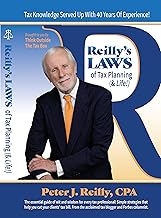Tim Smith consults with companies on how to reach members of the Echo Boom generation, also referred to as Millenials and Gen Y (Americans born between 1982 and 1995. My littlest echo all 6’4″ of him just started college this week). Tim writes the Echo Boom Bomb, when he is not busy guest posting for me.
The AP recently reported that 53.6% of college graduates under 25 are unemployed or underemployed (note, that the definition of “underemployed” has received some criticism) and the unemployment rate remains above 8%. As housing prices begin to rise, are we finally seeing the housing demand from the next major American generation – the Echo Boomers?
Echo Boomers, also called Millennials, constitute one of the largest generations in American history. Estimates show that 80 million Echo Boomers live in the United States (depending on when their birth dates are measured). For any business or individual tied to the real estate market, this generation offers a major business opportunity. However, as noted in the past, Echo Boomers haven’t jumped on buying houses, and have seemed financially constrained for the past few years
Jed Kolko, a Chief Economist at Tulia, recently discussed the housing demand from Echo Boomers and what he’s noticed. His thoughts, “The Millennial generation suffered a worse recession than older adults. The unemployment rate of 25-to-34-year-olds rose higher than the unemployment rate overall and has only recently fallen back in line. Many Millennials doubled up or stayed at home with parents rather than entering the housing market on their own as renters or buyers. But they won’t live with their parents forever.”
As shown in the housing data on Echo Boomers, living with relatives is fairly common and with a group facing unemployment and underemployment, relatives offer a temporary financial solution. What Jed Kolko also noted, as far as obstacles from Echo Boomers, was “the downpayment remains the biggest obstacle to homeownership, and with rents rising rapidly and student debt hanging over their heads, saving for a downpayment is a challenge.”
He provides an astute observation: the major expense for some Echo Boomers at this time is paying on their student loans. If they do seek housing, they may seek a place close to where they live that still holds their values. As many Millennial customers mentioned while at Wells Fargo, they still want a modern look for their housing with lower costs. This means that they may pay higher prices for places closer to where they work and congregate, or expect nicer and smaller housing while they pay down their major expenses. Check out this video.
Then again, changing tax policies could also affect future housing demand. As Jed Kolko pointed out in our interview, “The mortgage interest deduction is politically popular, but one of the few areas of possible bipartisan agreement on tax reform might be to reduce tax deductions – of which the mortgage interest deduction is a major one.” As the United States deals with its debt and future commitments, the government will be looking for ways to increase revenues, and one of those could be the mortgage interest deduction (it also could be the student loan interest deduction – which would continue to encumber housing demand from Echo Boomers).
Regardless, the housing market looks better than it did several years ago and if we see a financial recovery among Echo Boomers, housing demand should begin to rise if they stick to their goals of owning homes. On the other hand, another recession could keep housing from recovering for decades among this generation.
You can follow me on twitter @peterreillycpa.
Originally published on Forbes.com on August 22nd, 2012































































































